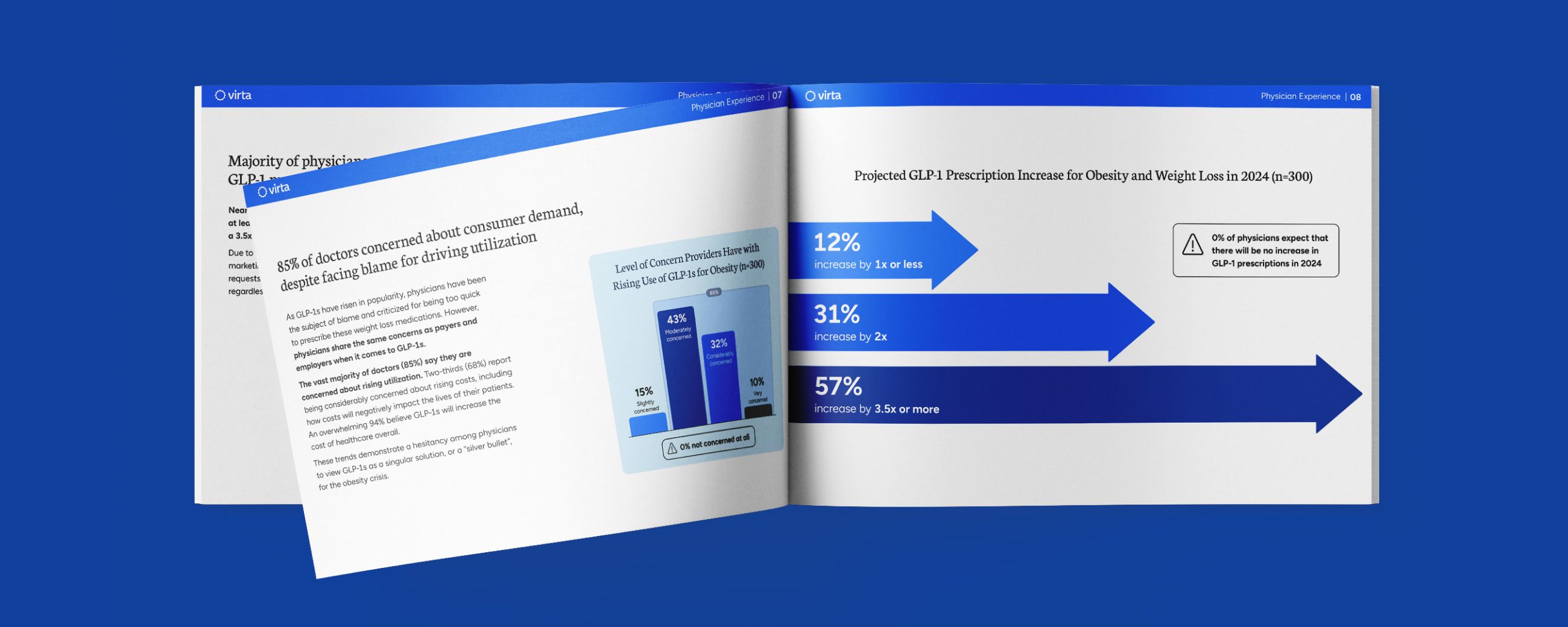
The Sad Saga of Saturated Fat

Here’s a fascinating paradox. Over the last four decades, nutrition policy makers have increasingly exhorted us to eat less saturated fat. As a result of this unremitting message, the general population believes this single nutrient, if not overtly toxic, will at least cause widespread bodily damage. Additionally, foods that naturally contain saturated fat, such as beef, pork, dairy, eggs, chocolate, and tropical oils, have been branded unhealthy. The paradox here is that as the drumbeat against saturated fats has increased, the actual science supporting this message has fallen into shambles. Should we all just be good citizens and swallow this advice, even if the science behind it can no longer pass muster?
Does saturated fat cause heart disease?
Two generations of researchers have tried to prove that eating saturated fat causes heart disease. Rather than growing stronger, as would be the case if this hypothesis were rock-solid, increasingly the scientific data is painting a picture more akin to low-fat Swiss cheese (i.e., not much there besides the holes). Take, for example, multiple recent meta-analyses of large populations followed carefully for decades, examining what they eat and what they die of [1-4] All show no consistent association between dietary saturated fat intake and risk for heart disease or death from all causes. In fact some of these studies show just the opposite – an inverse association of dietary saturated fat intakes and atherosclerosis or stroke. Interestingly, they also suggest that one’s risk for a coronary event increases when dietary saturated fat is reduced and replaced by carbohydrate.
Here’s the problem as we see it. By continuing to provoke fear about the harmful effects of saturated fat, the likely response is that people will seek out foods low in fat and higher in carbohydrate. And in reality, that’s exactly what appears to be happening. According to a government-funded survey, [5] Americans have decreased their consumption of saturated fat and replaced those calories with an even greater amount of carbohydrate. This dietary flip-flop of trading away saturated fat and replacing it with carbohydrate has occurred in the same time interval as rates of obesity and diabetes have rocketed skywards. This might be coincidence, or more likely it’s an extremely unfortunate unintended consequence.
Does dietary saturated fat contribute to levels of saturated fat in the blood?
Okay, so what we’re essentially doing here is telling you that much of what we’ve been taught about dietary fat is wrong. How could this be – that all those wise policy-makers backed up by legions of academic scientists have gotten this all wrong? That’s a long story, and a good place to start would be to read Good Calories, Bad Calories by Gary Taubes [6] and The Big Fat Surprise by Nina Teicholz, [7] both highly regarded investigative journalists. In short, 50 years ago diseased coronary arteries were found to contain buildups of cholesterol and saturated fat. Professor Ancel Keyes of the University of Minnesota hypothesized that too much of these two nutrients in the diet were the cause – i.e., his hypothesis was built on the flawed concept that you are what you eat. Then came well done studies showing that blood levels of saturated fats predict future cases of heart disease [8-11] and diabetes, [12-15] thus appearing to support Keyes’ hypothesis. But this works only if you believe this flawed sound bite, a concept that doesn’t pass the red-face test.
Obviously, the key question here is, “what’s the precise relationship between dietary saturated fat and blood levels of saturated fat?” For people who still believe you are what you eat, the answer is easy. And it follows from that easy answer that no one wants to accumulate saturated fat on their hips or lining their arteries. This is so instinctively logical that most people, including many prominent nutrition researchers, haven’t bothered to question it. Simply put, the current national policy imperative "don’t eat saturated fat" is based on a sound bite. The scientific evidence, however, clearly shows that dietary intake and serum levels of saturated fat show little if any correlation. Thus our advice that we banish this flawed sound bite and replace it with: you are what you save from what you eat.
What causes high levels of saturated fat in the blood?
If dietary saturated fat intake has little to do with saturated levels in our blood, then what does? There is, in fact, sound evidence that dietary carbohydrate is a major determinant of serum saturated fat levels. We know this because two respected research groups [16,17] fed humans carefully measured, weight-maintaining diets either high in carbohydrate or moderate in carbohydrate. In both studies, blood levels of saturated fats went up dramatically on the high carb diets, even though they were very low in fat. We [18] performed a weight loss study during which we fed diets varying from 32 up to 84 grams of saturated fat per day, with "healthy carbohydrate" making up the energy difference when dietary fat was reduced. In blood triglycerides and cholesteryl esters, saturated fat levels trended upwards when the high carbohydrate, very low fat diet was consumed, despite the diet being energy restricted, causing ongoing body fat loss.
On its surface, this looks like a paradox; but with a little thought it makes sense. A high carbohydrate intake has two effects in the body that promote higher levels of saturated fat. First, carbohydrates stimulate the body to make more insulin, which inhibits the oxidation of saturated fat. Thus, when insulin levels are high, saturated fat tends to be stored rather than burned as fuel. Second, a high carbohydrate intake promotes the synthesis of saturated fat in the liver. This is particularly problematic for individuals with insulin resistance, characterized as "carbohydrate intolerance" in our recent book. [19]
Insulin resistance makes it harder for muscles to take up and use blood sugar, thus causing a higher propensity for the liver to convert dietary carbohydrate into body fat. This combination of decreased oxidation and increased synthesis of saturated fat therefore results in accumulation of saturated fats in the blood and tissues. The culprit then is clearly not dietary saturated fat per se, but rather consumption of more carbohydrate than an individual’s body can efficiently manage. This threshold of carbohydrate tolerance varies from person to person, and it can also change over a lifetime. Thus the skinny model promoting her particular version of a low fat diet may actually thrive on it herself, but that doesn’t mean that it’s right for you if you weren’t born skinny. And of course, it also may not even be right for her when she’s 50 and her metabolism has changed.
The safety of saturated fat
So, you may be asking, if consumption of saturated fat is not associated with harmful effects on the body, does this mean that this class of fats is completely off the hook? Our response is that the science of nutrition is pretty complex, so beware of black and white answers. Whereas dietary saturated fat intake is unrelated to risk for chronic disease, higher saturated fat levels in the blood do appear to pose a problem. As we noted, there is a lot of variation between individuals in their responses to any one diet, and this may be particularly important if a susceptible individual chooses to consume high levels of carbohydrates and saturated fat. Thus there is an unmet need for tests that will guide individuals to the correct amounts of both carbohydrates and saturated fat to match their personal metabolic tolerances.
In addition to the studies mentioned above in which high carbohydrate feeding increased blood levels of saturated fats, we conducted a pair of studies [20, 21] allowing 6-12 weeks for adaptation to moderate carbohydrate or very low carbohydrate diets. Because these were not very low-calorie diets, the low-carb diets were naturally pretty high in fat, containing 2-3 fold greater intakes of saturated fat than the moderate carbohydrate diets used as controls. The results were pretty striking: compared to low-fat diets, blood levels of saturated fat were markedly decreased in response to the low carbohydrate, high fat diets. Our data indicates that this occurred because the low insulin levels accelerated the oxidation of all fats (and particularly saturated fat); plus the relative paucity of dietary carbohydrate meant there wasn’t much of it to be converted into saturated fats. Thus, from the body’s perspective, a low-carbohydrate diet reduces blood saturated fat levels irrespective of dietary saturated fat intake.
In closing
And so we end this sad saga about poor, downtrodden saturated fats on a hopeful note. Yes, dietary saturated fat continues to be scapegoated as the presumptive cause of many health problems in developed countries. However we now know that nutrition policy makers have indicted the wrong nutrient for the crime of raising blood saturated fat levels. If we can just banish the phrase you are what you eat, however, perhaps the nutritional establishment would broaden their perspective to consider how other offenders determine blood saturated fat levels and contribute to overall health and disease.
There is convincing evidence that dietary carbohydrate exerts an important influence on how the body processes saturated fat. Thus, saturated fat, whether made in the body or eaten in the diet, is more likely to accumulate when aided and abetted by high levels of dietary carbohydrate, particularly in insulin-resistant individuals (as in type 2 diabetes or metabolic syndrome). Especially in these substantial segments of our population, a one-size-fits-all recommendation to aggressively lower saturated fat intake with the expectation of lowering blood saturated fat levels is intellectually invalid and likely to backfire. Given our current epidemics of obesity and diabetes, we can’t afford to continue diet policies based on a tragically flawed, simplistic sound bite.
The information we provide at virtahealth.com and blog.virtahealth.com is not medical advice, nor is it intended to replace a consultation with a medical professional. Please inform your physician of any changes you make to your diet or lifestyle and discuss these changes with them. If you have questions or concerns about any medical conditions you may have, please contact your physician.
This blog is intended for informational purposes only and is not meant to be a substitute for professional medical advice, diagnosis, or treatment. Always seek the advice of your physician or other qualified health provider with any questions you may have regarding a medical condition or any advice relating to your health. View full disclaimer
Are you living with type 2 diabetes, prediabetes, or unwanted weight?

- Siri-Tarino PW, Sun Q, Hu FB, Krauss RM. Meta-analysis of prospective cohort studies evaluating the association of saturated fat with cardiovascular disease. Am J Clin Nutr. 2010 Mar;91(3):535-46.
- Jakobsen MU, O'Reilly EJ, Heitmann BL, Pereira MA, Bälter K, Fraser GE, Goldbourt U, Hallmans G, Knekt P, Liu S, Pietinen P, Spiegelman D, Stevens J, Virtamo J, Willett WC, Ascherio A. Major types of dietary fat and risk of coronary heart disease: a pooled analysis of 11 cohort studies. Am J Clin Nutr. 2009 May;89(5):1425-32.
- Skeaff CM, Miller J. Dietary fat and coronary heart disease: summary of evidence from prospective cohort and randomised controlled trials. Ann Nutr Metab. 2009;55(1-3):173-201.
- Yamagishi K, Iso H, Yatsuya H, Tanabe N, Date C, Kikuchi S, Yamamoto A, Inaba Y, Tamakoshi A; JACC Study Group. Dietary intake of saturated fatty acids and mortality from cardiovascular disease in Japanese: the Japan Collaborative Cohort Study for Evaluation of Cancer Risk (JACC) Study. Am J Clin Nutr. 2010 Oct;92(4):759-65.
- Centers for Disease Control and Prevention (CDC). Trends in intake of energy and macronutrients--United States, 1971-2000. MMWR Morb Mortal Wkly Rep. 2004 Feb 6;53(4):80-2.
- Taubes, G. Good Calories, Bad Calories. Knopf, September 25, 2007.
- Teicholz N. The Big Fat Surprise. Simon & Schuster; May 2014
- Miettinen TA, Naukkarinen V, Huttunen JK, Mattila S, Kumlin T. Fatty-acid composition of serum lipids predicts myocardial infarction. Br Med J (Clin Res Ed). 1982 Oct 9;285(6347):993-6.
- Simon JA, Hodgkins ML, Browner WS, Neuhaus JM, Bernert JT Jr, Hulley SB. Serum fatty acids and the risk of coronary heart disease. Am J Epidemiol. 1995 Sep 1;142(5):469-76.
- Wang L, Folsom AR, Eckfeldt JH. Plasma fatty acid composition and incidence of coronary heart disease in middle aged adults: the Atherosclerosis Risk in Communities (ARIC) Study. Nutr Metab Cardiovasc Dis. 2003 Oct;13(5):256-66.
- Yamagishi K, Nettleton JA, Folsom AR; ARIC Study Investigators. Plasma fatty acid composition and incident heart failure in middle-aged adults: the Atherosclerosis Risk in Communities (ARIC) Study. Am Heart J. 2008 Nov;156(5):965-74.
- Wang L, Folsom AR, Zheng ZJ, Pankow JS, Eckfeldt JH; ARIC Study Investigators. Plasma fatty acid composition and incidence of diabetes in middle-aged adults: the Atherosclerosis Risk in Communities (ARIC) Study. Am J Clin Nutr. 2003 Jul;78(1):91-8.
- Warensjö E, Risérus U, Vessby B. Fatty acid composition of serum lipids predicts the development of the metabolic syndrome in men. Diabetologia. 2005 Oct;48(10):1999-2005.
- Hodge AM, English DR, O'Dea K, Sinclair AJ, Makrides M, Gibson RA, Giles GG. Plasma phospholipid and dietary fatty acids as predictors of type 2 diabetes: interpreting the role of linoleic acid. Am J Clin Nutr. 2007 Jul;86(1):189-97.
- Patel PS, Sharp SJ, Jansen E, Luben RN, Khaw KT, Wareham NJ, Forouhi NG. Fatty acids measured in plasma and erythrocyte-membrane phospholipids and derived by food-frequency questionnaire and the risk of new-onset type 2 diabetes: a pilot study in the European Prospective Investigation into Cancer and Nutrition (EPIC)-Norfolk cohort. Am J Clin Nutr. 2010 Nov;92(5):1214-22.
- Raatz SK, Bibus D, Thomas W, Kris-Etherton P. Total fat intake modifies plasma fatty acid composition in humans. J Nutr. 2001 Feb;131(2):231-4.
- King IB, Lemaitre RN, Kestin M. Effect of a low-fat diet on fatty acid composition in red cells, plasma phospholipids, and cholesterol esters: investigation of a biomarker of total fat intake. Am J Clin Nutr. 2006 Feb;83(2):227-36.
- Volk BM Kunces LJ, Freidenreich DJ, Kupchak BR, Saenz C, Artistizabal JC, Fernandez ML, Bruno RS, Maresh CM, Kraemer WJ Phinney SD, Volek JS. Effects of Step-Wise Increases in Dietary Carbohydrate on Circulating Saturated Fatty Acids and Palmitoleic Acid in Adults with Metabolic Syndrome. PLOS ONE | DOI:10.1371/journal.pone.0113605 November 21, 2014
- Volek J, Phinney SD. The Art and Science of Low Carbohydrate Living. Beyond Obesity, May 2011.
- Forsythe CE, Phinney SD, Fernandez ML, Quann EE, Wood RJ, Bibus DM, Kraemer WJ, Feinman RD, Volek JS. Comparison of low fat and low carbohydrate diets on circulating fatty acid composition and markers of inflammation. Lipids. 2008 Jan;43(1):65-77.
- Forsythe CE, Phinney SD, Feinman RD, Volk BM, Freidenreich D, Quann E, Ballard K, Puglisi MJ, Maresh CM, Kraemer WJ, Bibus DM, Fernandez ML, Volek JS. Limited effect of dietary saturated fat on plasma saturated fat in the context of a low carbohydrate diet. Lipids. 2010 Oct;45(10):947-62.









